There are over 14,000 rehabilitation facilities in the United States today. If you went into an inpatient facility, you might have been in crisis, and someone else may have chosen the facility on your behalf. Now that you’re returning to your life, you get to make informed choices about your own aftercare preferences.
How do you decide which outpatient rehab center will serve you during this leg of your recovery journey?
Whether you have relapsed or are simply seeking support during early recovery, outpatient rehabs offer the services you need to balance recovery and daily living. A short-term rehabilitation center can provide counseling and transitional services to help you build a new foundation for your life. If you choose the right program, you can completely transform your life, resist temptation, and thrive.
We want to help you choose correctly. We’ve created this list of five factors to consider when you’re choosing an outpatient rehab program. Keep reading to learn what to look for in a truly transformative program.
1. Location, Location, Location
When you’re in an inpatient facility, all you need to do is wake up and you’re exactly where you need to be. When you’re pursuing outpatient services, you need to get yourself there. It’s important to consider the practicality of the location before you commit.
If you plan to drive, is the facility within easy and accessible driving distance? Will you need to drive past triggering locations to arrive safely? Will you be able to consistently afford the gas that will get you there?
If you use public transportation, have you confirmed that the facility is accessible? Locate the nearest bus stop or train station and do a dry run. Can you get there and back in a reasonable amount of time?
This may sound obvious, but the location is the first and, arguably, the most important factor to consider when committing to outpatient treatment.
2. What Types of Therapy Do They Offer?
Once you’ve confirmed that you can get to the location, find out what type of rehabilitation program you will be attending. Not all outpatient rehab programs are alike, so it’s important to do your research at this stage. Don’t be afraid to ask questions before you commit: namely, what types of therapy do they offer at the facility?
The gold standard in outpatient rehab is evidence-based care. This means that the facility uses treatment methods based on scientific data.
A few examples of evidence-based therapeutic modalities include:
- Cognitive-behavioral therapy
- Group Therapy
- 12-Step Programs
- Medication-assisted recovery services
- Motivational incentive programs
Many outpatient rehab programs use a combination of these techniques. Choose a program that offers evidence-based treatment that meets your current needs.
3. Do They Offer Family Counseling?
An inpatient rehab facility is a closed environment. In contrast, you will attend outpatient rehab while engaging regularly with the public. That includes the friends and family who will form the basis of your support system in recovery.
Reengaging with your loved ones can be one of the most challenging parts of reintegrating into your life. Many family members will want to support you but they may not know how to do it. Likewise, some of your important relationships may have become strained while you were using.
Consider whether or not family services, such as counseling, will be beneficial for you at this stage in your recovery. Likewise, you may want to find out if they offer dedicated programs for families living with addiction, such as Al-Anon or Alateen meetings.
4. Can You Afford It?
Financial concerns should not be what prevents you from seeking aftercare services.
On the whole, insurance will pay for many types of rehabs. Some facilities also accept payment plans. Outpatient rehab is often significantly less expensive than PHP or inpatient rehab programs, even out of pocket.
The cost of a program can vary based on the length of treatment and your specific needs. You don’t want to get blindsided by bills and have to leave treatment before you have the tools you need to live a sober life. The best way to ensure that you can afford a program is to sit down with intake staff and discuss your specific financial concerns at the start.
Getting back on your feet financially can be a major component of recovery. Don’t dig yourself a deeper hole by committing to treatment that you can’t afford. You will have to be your own best advocate during this process.
5. What Do They Offer Besides Therapy?
Sobriety is only one aspect of life after treatment. You may need help in other areas, such as securing a job, finding housing, or locating appropriate childcare. Many outpatient rehab facilities offer practical transitional services that can help.
Identify the services that you need to truly get back on your feet and be sure to prioritize those services during your search. Securing employment can help ensure that you can continue to pay for treatment, for example. Finding housing will provide you with a safe foundation while you complete your therapeutic work.
You might want to look for a program that offers holistic services. These programs prioritize the wellness of the whole person. As a bonus, holistic programs may be able to help you with gym memberships, meditation groups, or even finding fun activities to do outside of treatment.
The Key to Choosing Outpatient Rehabs
Stepping back into the world after an inpatient rehabilitation experience can be overwhelming. Outpatient rehabs allow you to settle back into life with a backup support system in place. Choosing the right one can ensure your long-term success.
If you’re seeking an outpatient aftercare program, we want to offer our support. Take a look at the rest of the blog for more posts that will help you make an informed choice about your recovery journey.


